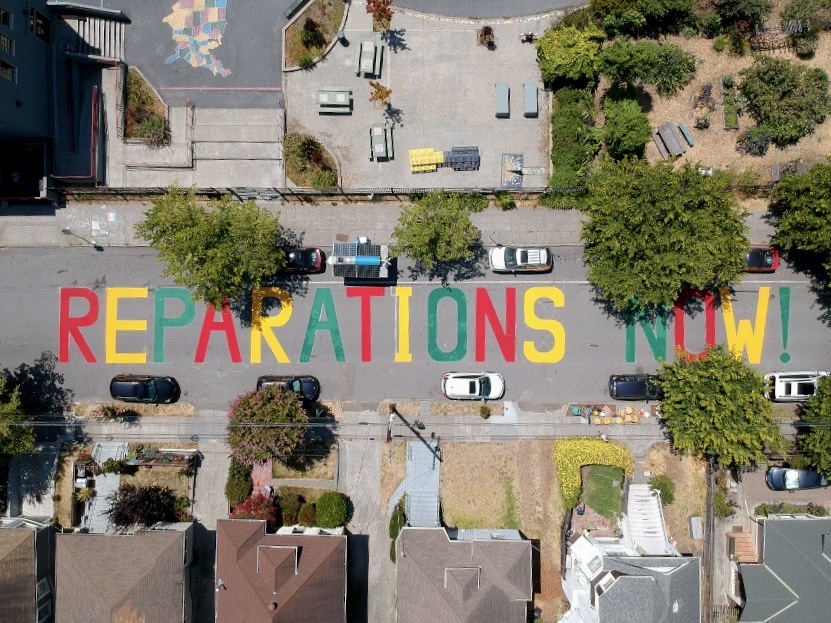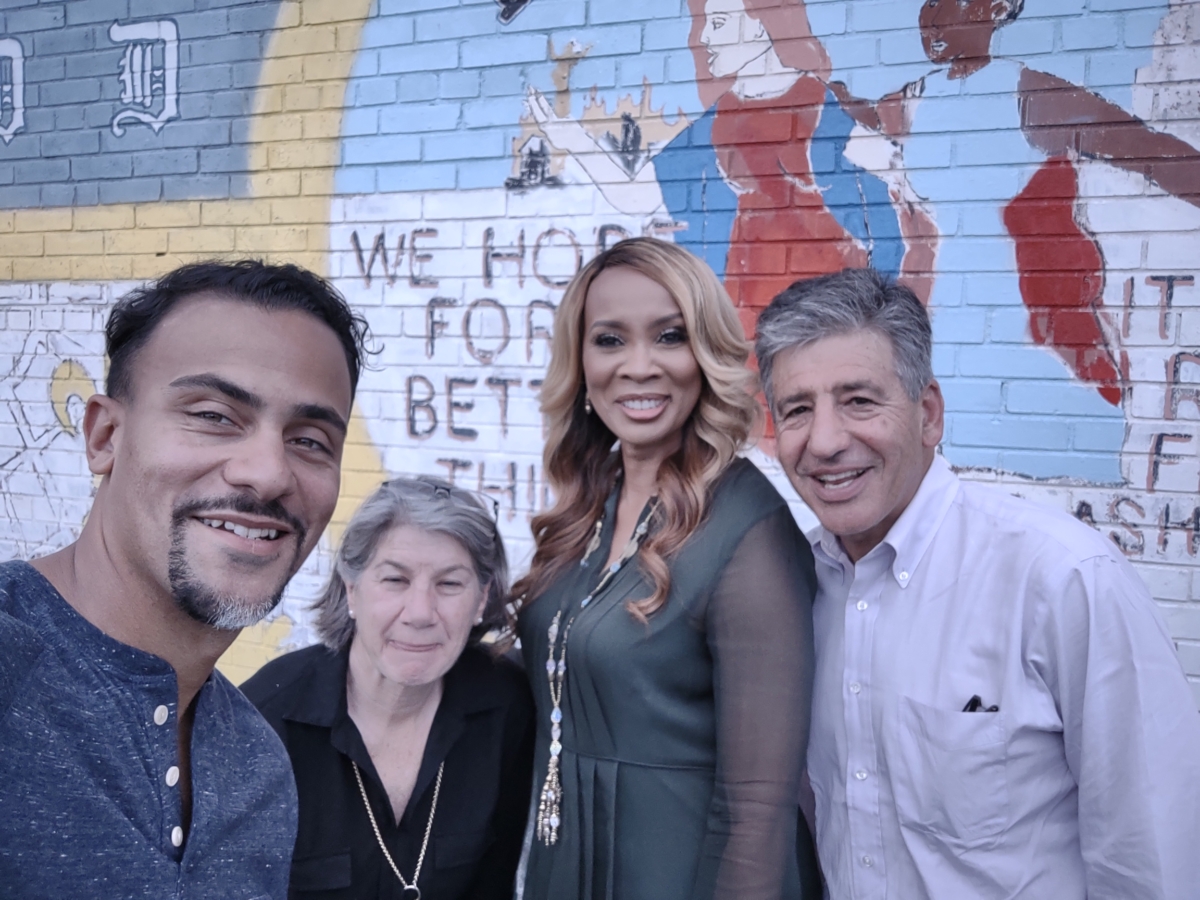
Update, May 1 A Berkeley Unified task force met privately for the first time on April 25 to begin crafting recommendations for how to pay for reparations to students with enslaved ancestors.
Because the task force was convened by Superintendent Enikia Ford Morthel and not by the school board, the district doesn’t have a legal obligation under the Brown Act to make the monthly meetings public. The list of members on the task force has also not been made public.
The task force is expected to present publicly its recommendations for financing the reparations program in January 2024. Recommendations about how the district should structure the reparations and who should be included are expected to come later.
The district has a legal right to convene private groups to advise the superintendent, according to David Loy, a legal director at First Amendment Coalition. But Loy said a drawback of the decision to make meetings private is that it limits the public’s ability to weigh in early in the process.
The majority of school board directors voiced support for the creation of the task force in March after Adena Ishii, a community member who is part of a loose coalition pushing for reparations in Berkeley, repeatedly raised the issue during public comment.
The school board did not formally recommend that the superintendent convene the task force, which Loy said would have required the task force meetings to be public.
BUSD spokesperson Trish McDermott said the district was working on an FAQ about the reparations task force but has not yet responded to Berkeleyside’s questions about why the district chose to make the task force private.
Original post, March 24 Berkeley Unified announced this week it will create a reparations program for Black students in the school district.
The district wants to give cash payments to students whose ancestors were enslaved in the United States, and it is establishing a new task force to set the course for the reparations program. The process could take years, but if it is implemented, it may be the first program of its kind in the country.
“The need for reparations in response to the institution of U.S. slavery has existed for over 150 years,” school board director Laura Babitt said at Wednesday’s board meeting. “I think it’s time for Berkeley to be first again.”
The 15- to 20-person task force will provide recommendations to the Berkeley school board by January 2024 on how it should pay for reparations and, later, on how the program should be structured and implemented, and who would be eligible for payments. BUSD is now recruiting members to join the task force.
More than 30 cities, counties and states and have pursued reparations for Black residents after an initial surge in interest in the year following George Floyd’s murder in 2020, though only in Evanston, Illinois have cash payments been implemented.
In 2022, the city of Berkeley began exploring its own reparations effort. This year, the city will hire a consultant to develop a reparations plan. What that might look like is still being determined, but a report prepared by councilmember Ben Bartlett outlined several steps, ranging from public apology to wealth creation through housing. The city’s plan could also include cash payments.
“The more bodies that embrace reparations and get into this notion of just compensation, the better,” Barlett said. He hopes that Berkeley’s and BUSD’s pursuit of reparations will trigger other cities and school districts to do the same. “It’s going to take a real Herculean groundswell to get the true ower of reparations — the federal government — to pay it.”
In San Francisco, which began exploring reparations in 2020, a task force recently shared its list of over 100 recommendations, including its most ambitious idea: $5 million cash payments to eligible Black residents. A state reparations committee is also expected to begin sharing its recommendations soon.
Reparations plans by school boards have few precedents.
The Oakland school board passed the Reparations for Black Students resolution two years ago to provide more resources to Black students, but discussions have stalled due to limited participation.
Unlike in Oakland, the Berkeley school district is solely focused on cash payments to students.
“Slavery is an example where people’s labor was stolen, and it’s about time we pay that back, at least in part, at least what we can,”said Jennifer Shanoski, a Berkeley school board director who was involved in OUSD’s reparations program.
Babitt announced the creation of the task force at the board meeting Wednesday night. The item wasn’t on the agenda and school board directors did not vote on it, but most had previously expressed support for the idea. The superintendent sent an email about the new task force the next day.
Because poverty, race and educational outcomes are intrinsically linked, Babitt believes that cash payments could address the persistent achievement gaps in BUSD in the long run.
“A big part of our equity gap is the fact that the haves can literally supplement their children’s education in a much different way than the have-nots,” Babitt said, referring to services like private tutoring. Slavery and its legacy, modern-day racism, “has impacted people’s ability to provide resources to their children at the same level” as other families.
Adena Ishii, who has volunteered at BUSD schools, has been advocating for BUSD to start pursuing reparations for months. She is part of a group of local advocates pushing for reparations, including Josh Daniels, a former school board director; Rev. Anthony Hughes, the pastor at St. Paul African Methodist Episcopal Church in Berkeley; and Kameka Goodwin, from local nonprofit Healthy Black Families.
“I think it’s so important for other groups to be involved and for other people, not just people of color, not just Black folks, to be supportive of this type of reparations,” Ishii said.
The issue of reparations is personal for Ishii: Her family was incarcerated at concentration camps during World War II and later she studied reparations to Japanese Americans while at Santa Clara University Law School. Her research taught her that solidarity between different racial groups should be an integral part of movements.
Kad Smith, who has ten years of experience in leadership development and organizing in Berkeley and Oakland, will facilitate the task force. Smith, an alum of Berkeley High, worked on the 2016 initiative to give youth the right to vote in local school board elections and is now enrolled in law school at the University of San Francisco.
Correction: A previous version of this story misstated the university where Adena Ishii earned her law degree. It was Santa Clara University School of Law, not UC Berkeley.


